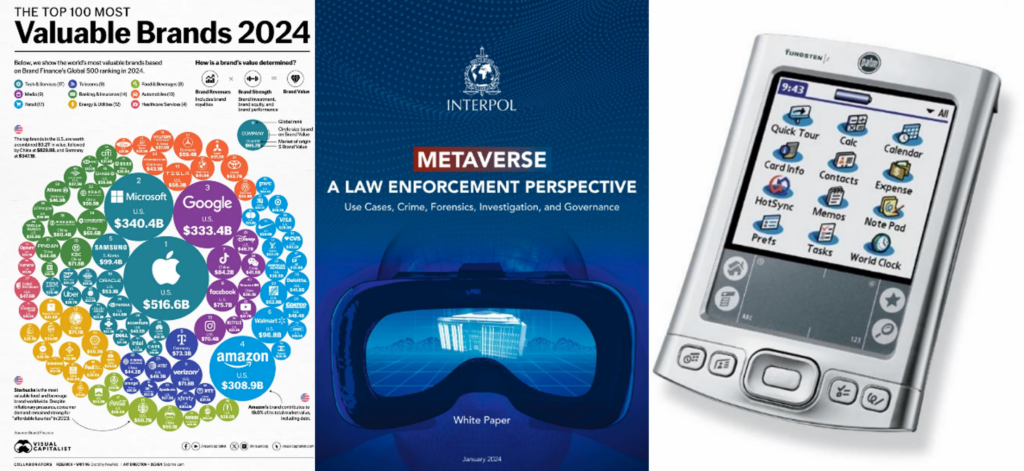Brand value, Dominant design, AI-based business models, IP in the metaverse, The technology S-curve: 🎯 IP Management Pulse #6
Many IP experts in the IP community at I3PM, the HTB-EPO initiative, and other global IP offices and institutions in national and regional innovation systems have asked Prof. Alexander Wurzer: “where can you be sure not to miss any important IP management content”. In fact, you have to follow a number of interesting feeds to really keep up with the global developments around IP management. To make this easier he decided to offer his own personal newsletter for IP management. Here you can find the last issues in the archive and also subscribe. A fresh read with all the important IP Management content will be sent to the subscribers every second Thursday at 7.00 (CET), so you can start your day informed.
The next Newsletter will cover the following topics:
What makes brands valuable?
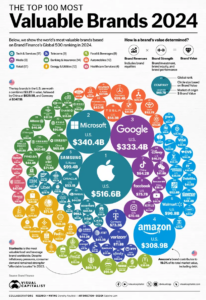 I get asked this often: 𝐇𝐨𝐰 𝐯𝐚𝐥𝐮𝐚𝐛𝐥𝐞 𝐢𝐬 𝐈𝐏 🤔? Simple answer: look at your 𝐛𝐫𝐚𝐧𝐝 𝐯𝐚𝐥𝐮𝐞 😮!
I get asked this often: 𝐇𝐨𝐰 𝐯𝐚𝐥𝐮𝐚𝐛𝐥𝐞 𝐢𝐬 𝐈𝐏 🤔? Simple answer: look at your 𝐛𝐫𝐚𝐧𝐝 𝐯𝐚𝐥𝐮𝐞 😮!
In practice, it is often forgotten how important IP (intellectual property) is for building, maintaining and increasing brand value. In a fast-moving market environment characterized by heavy competition, brands, as an anchor of trust among customers, are of great importance for the sustainability of the success of companies. There are a few companies that are really doing a lot right in this regard and from which you can learn a lot – 𝐭𝐚𝐤𝐞 𝐚 𝐥𝐨𝐨𝐤 𝐚𝐭 𝐨𝐮𝐫 𝐜𝐚𝐬𝐞 𝐬𝐭𝐮𝐝𝐢𝐞𝐬!
Dominant design
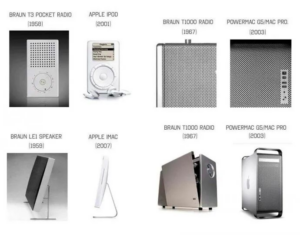 What is inspiration and what is copy 🤔? Apple’s design language is obviously influenced by Braun – but has been taken further ingeniously 🧐.
What is inspiration and what is copy 🤔? Apple’s design language is obviously influenced by Braun – but has been taken further ingeniously 🧐.
Jonathan Ive, the former senior vice president of industrial design at Apple, was heavily inspired by Dieter Rams’ minimalist industrial design. Some Apple products show clear similarities to the designs that Dieter Rams created for Braun.
AI-based business models
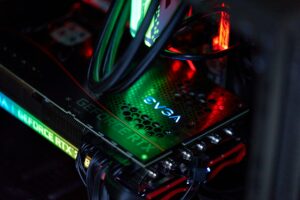 Is AI just a short-term fad 🤔? Will it go away again 🤔? No, just look at the numbers of NVIDIA: They are worth more than Google & Amazon😮!
Is AI just a short-term fad 🤔? Will it go away again 🤔? No, just look at the numbers of NVIDIA: They are worth more than Google & Amazon😮!
📢 𝐍𝐨 𝐜𝐨𝐦𝐩𝐞𝐭𝐢𝐭𝐨𝐫 𝐰𝐢𝐥𝐥 𝐰𝐚𝐢𝐭 𝐮𝐧𝐭𝐢𝐥 “𝐞𝐯𝐞𝐫𝐲𝐨𝐧𝐞 𝐢𝐬 𝐫𝐞𝐚𝐝𝐲”. 𝐌𝐚𝐤𝐞 𝐲𝐨𝐮𝐫 𝐈𝐏 𝐦𝐚𝐧𝐚𝐠𝐞𝐦𝐞𝐧𝐭 𝐚𝐧𝐝 𝐲𝐨𝐮𝐫 𝐈𝐏 𝐬𝐭𝐫𝐚𝐭𝐞𝐠𝐲 𝐀𝐈-𝐫𝐞𝐚𝐝𝐲 𝐧𝐨𝐰, 𝐨𝐭𝐡𝐞𝐫𝐰𝐢𝐬𝐞 𝐢𝐭 𝐜𝐨𝐮𝐥𝐝 𝐛𝐞 𝐭𝐨𝐨 𝐥𝐚𝐭𝐞 𝐢𝐧 𝐧𝐨 𝐭𝐢𝐦𝐞.
IP protection in the metaverse
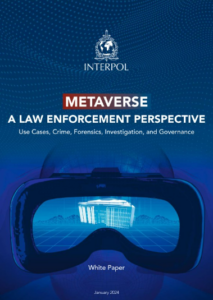 The 𝐌𝐞𝐭𝐚𝐯𝐞𝐫𝐬𝐞 is not a legal vacuum – it’s good that INTERPOL makes that clear 🧐. The investments continue, the metaverse grows and with it 𝐌𝐞𝐭𝐚𝐜𝐫𝐢𝐦𝐞 and IP infringements 👀.
The 𝐌𝐞𝐭𝐚𝐯𝐞𝐫𝐬𝐞 is not a legal vacuum – it’s good that INTERPOL makes that clear 🧐. The investments continue, the metaverse grows and with it 𝐌𝐞𝐭𝐚𝐜𝐫𝐢𝐦𝐞 and IP infringements 👀.
📢 𝐈𝐧 𝐭𝐡𝐞 𝐧𝐞𝐱𝐭 𝐯𝐞𝐫𝐬𝐢𝐨𝐧 𝐨𝐟 𝐭𝐡𝐞 𝐈𝐧𝐭𝐞𝐫𝐧𝐞𝐭 – 𝐖𝐞𝐛𝟑 – 𝐭𝐡𝐞𝐫𝐞 𝐚𝐫𝐞 𝐜𝐨𝐮𝐧𝐭𝐥𝐞𝐬𝐬 𝐟𝐫𝐞𝐞 𝐫𝐢𝐝𝐞𝐫𝐬 𝐚𝐧𝐝 𝐬𝐨𝐥𝐝𝐢𝐞𝐫𝐬 𝐨𝐟 𝐟𝐨𝐫𝐭𝐮𝐧𝐞 – 𝐞𝐯𝐞𝐫𝐲 𝐈𝐏 𝐨𝐰𝐧𝐞𝐫 𝐬𝐡𝐨𝐮𝐥𝐝 𝐛𝐞 𝐯𝐢𝐠𝐢𝐥𝐚𝐧𝐭 𝐡𝐞𝐫𝐞 𝐚𝐧𝐝 𝐬𝐞𝐜𝐮𝐫𝐞 𝐭𝐡𝐞𝐢𝐫 𝐫𝐢𝐠𝐡𝐭𝐬 𝐚𝐧𝐝 𝐞𝐧𝐟𝐨𝐫𝐜𝐞 𝐭𝐡𝐞𝐦.
The technology S-curve
 Do you know what an 𝐒-𝐜𝐮𝐫𝐯𝐞 is 🤔? Or: Why are there no more Palm handheld PDAs and what does that mean for your IP 🧐?
Do you know what an 𝐒-𝐜𝐮𝐫𝐯𝐞 is 🤔? Or: Why are there no more Palm handheld PDAs and what does that mean for your IP 🧐?
📣 𝐅𝐨𝐫 𝐢𝐧𝐧𝐨𝐯𝐚𝐭𝐢𝐨𝐧 𝐚𝐧𝐝 𝐈𝐏 𝐬𝐭𝐫𝐚𝐭𝐞𝐠𝐲, 𝐢𝐭 𝐢𝐬 𝐢𝐦𝐩𝐨𝐫𝐭𝐚𝐧𝐭 𝐭𝐨 𝐫𝐞𝐜𝐨𝐠𝐧𝐢𝐳𝐞 𝐰𝐡𝐞𝐫𝐞 𝐲𝐨𝐮 𝐚𝐫𝐞 𝐨𝐧 𝐭𝐡𝐞 𝐫𝐞𝐬𝐩𝐞𝐜𝐭𝐢𝐯𝐞 𝐒-𝐜𝐮𝐫𝐯𝐞. Technology companies are currently relying on the successor to the smartphone.
Whom to follow
Robert Plotkin shows and comments on the latest developments regarding the patenting of software and AI on his LinkedIn feed. In particular, he discusses the latest developments in the USA regarding AI-assisted inventions. He also offers insights for companies that want to protect their AI-assisted inventions and business models through intellectual property, especially patents.
Alexander Weir provides you on his LinkedIn feed with comprehensive information on current reports, case studies and analyses on IP, business and technology. He places a special focus on all topics related to the opportunities and challenges of AI and the developments of the regulatory framework in the EU. He also provides insights for SMEs on how they can use IP to support and protect their innovations in the market.
The Anatomy of a valuable patent
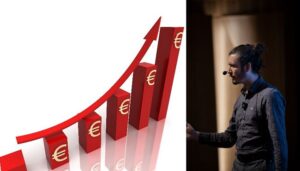 Patents are a form of intellectual property that gives the patent owner the exclusive right to exclude others from making, using, selling and importing the invention covered by the patent for a specified period of time, typically 20 years from the date of filing. However, simply owning a patent does not automatically generate revenue or financial value.
Patents are a form of intellectual property that gives the patent owner the exclusive right to exclude others from making, using, selling and importing the invention covered by the patent for a specified period of time, typically 20 years from the date of filing. However, simply owning a patent does not automatically generate revenue or financial value.
When it comes to creating value from your patents, things get complicated. This is because the success rate of a patent or group of patents depends on a variety of factors, including legal, technological, and business perspectives.
Top 3 misconceptions about AI that IP practitioners should be aware of
 AI (Artificial Intelligence) has been part of my career for almost two decades now. Initially in my electrical engineering studies and in scientific research, in software development, and then of course, mostly as inventions to be patented. In the following, I would like to clear up a few misconceptions in the context of AI in Intellectual property (IP) that I have come across most often and not just since the hype triggered by ChatGPT.
AI (Artificial Intelligence) has been part of my career for almost two decades now. Initially in my electrical engineering studies and in scientific research, in software development, and then of course, mostly as inventions to be patented. In the following, I would like to clear up a few misconceptions in the context of AI in Intellectual property (IP) that I have come across most often and not just since the hype triggered by ChatGPT.
How do fashion brands create and protect their brand value?
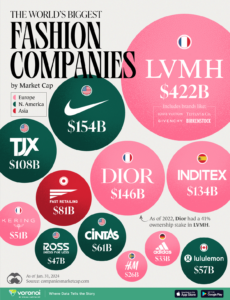 Strong brands have a significant impact on the earning power, growth and risk of companies. For example, they lead to the achievement of price premiums by skimming off customers’ willingness to pay for branded products. They generally influence purchasing decisions and preferences for certain products, leading not least to volume premiums. Both can be seen in the most valuable fashion brands all around the world.
Strong brands have a significant impact on the earning power, growth and risk of companies. For example, they lead to the achievement of price premiums by skimming off customers’ willingness to pay for branded products. They generally influence purchasing decisions and preferences for certain products, leading not least to volume premiums. Both can be seen in the most valuable fashion brands all around the world.
IP design
IP design is used to design solutions for a specific business model which, on the one hand, are not yet covered by third-party IP rights and, on the other hand, can be made exclusive through the targeted generation of own IP. However, the focus is not just on generating intellectual property rights – IP should rather be created in exactly those places where exclusivity is desirable from the point of view of the business model and leads to major advantages in the differentiation competition. For this purpose, the application of IP design leaves the classical path of the creation of IP rights behind. There is no reaction to inventions that are reported by developers. Rather, protectable inventions are derived from the analysis of the business model and, to a certain extent, synthetically produced.

